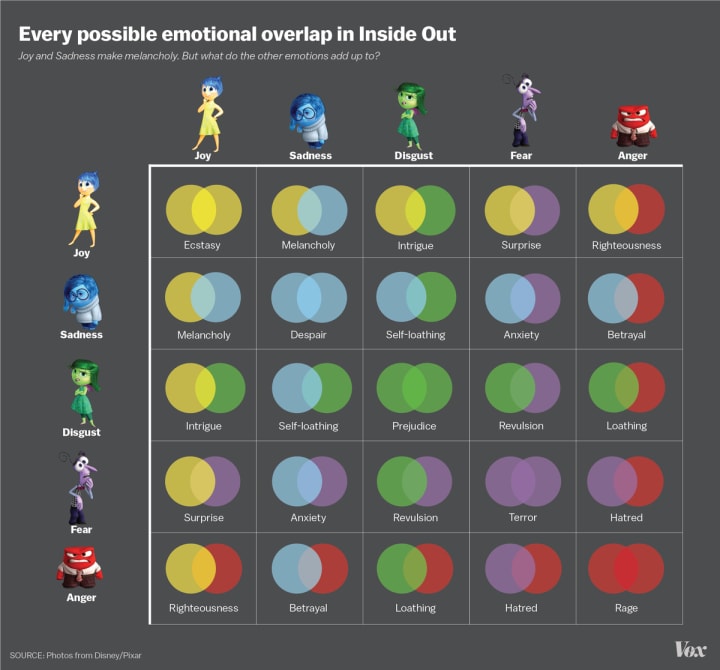'127 Hours': What Is Fear? Is It Hostile?
First '127 Hours' essay

127 Hours is an action movie, directed by Danny Boyle, starring James Franco as the main character of the film, nominated for an Oscar thanks to this movie. This piece of art talks about the shocking, real set of events that Aron Ralston had to go through, when his hand got trapped in a rock while he was exploring Blue John Canyon, in Utah. In the movie, we can see the measures Aron had to take as the physiological effects that being trapped caused, with half a water bottle during five whole days.
This extraordinary story covers not only philosophical themes, but also psychological ones presented in our daily lives. I am going to divide the analysis of the movie into three parts: The first one is going to talk about fear, and why it is an essential emotion in our life, the second being about why we are scared of death, and the instincts humans have of survival. And finally, I will compare the movie to the course of life, relating it with destiny.
To start off, I am going to explain briefly what emotions are, the main ones being: sadness, fear, happiness, surprise, disgust, and anger. They all can be combined to make more complex emotions, some of them being: depression, hate, intrigue, and anxiety. The first one, for example—Depression is a mix of sadness with even more sadness, while anxiety is a combination of fear and again sadness. The following table represents some of the most known possible combinations, from the 2015 movie, Inside Out:

Again I will say that I will emphasize, in this part of the analysis, the emotion of fear. This is a basic, primary, and universal one, which can be found in almost every culture and society. The main brain structure in charge of its response is the amygdala. The feeling of fear can bring enormous consequences to the organism. It is true that it can be unpleasant, that it can make our body feel bad and uncomfortable. But it is also a passive emotion. Due to its defenseless properties, it makes as take a step back from the situation we are experiencing. We can say that it is actually fundamental on a daily basis, because it is in charge of a basic human function: surviving. If we lived without fear, we would probably die. The only problem about this controversial emotion is one of the types they include: the dysfunctional fear.
Before explaining this type, I will justify more deeply what the function of fear has in society. Almost all of the times, it is related to something negative, characteristics that lead to unhappiness. The questions that may arise from this are: Why does fear even exist?, Does it have a specific function? Like I said, it serves a main role in the survival of humans. It is a mechanism that helps us adapt to the environment we live in. Taking a reference from the movie, the fact that Aron Ralston was trapped, was a threat to him, leading to the rise of fear, which thanks to it can create a state of emergency in each individual. The threats we may find vary; some of them can even be directed to our own self-esteem, and not only our security. At the end, this emotion rises from the reaction to our mental patterns of beliefs and thoughts. Again, if this emotion didn't exist we would have died, and we would act reckless with no fear of consequences putting ourselves in dangerous situations. If we stop to analyse this phenomenon, we could agree that fear is a positive emotion.
There are actually two types of fears: the functional and the dysfunctional, as I have mentioned earlier. The first I just explained; it is activated when facing a real threat, and it helps us survive. It is beneficial. On the other side, fear is not always a mechanism that helps us in everyday life. It can also cause some unnecessary insecurities, when facing some situations. I am talking about the dysfunctional fear. Before, I will firmly state that there are not positive or negative fears, because the fact of feeling emotions is already positive. They are useful in every way. We should be able to feel them with liberty, instead of repressing or controlling them. Coming back to the dysfunctional fear, its consequences are even worse than the ones experienced if we didn't have this emotion. Let's take another example, a really common activity: talking in public. When we are offered to do so, we start to elaborate hypothesis in our minds from what could go wrong, or if we are going to do something we didn't expect, or how are others going to think about us. If we think about it, the dysfunctional fear is not the problem, but our attitude towards it. We can either control the fear, or let it control us. Choosing the first option, we are going to be able to, in the long-term, enjoy things to a higher degree, as well as have more personal and unique experiences.
At the end, the negativity of fear is a myth that, as I have said, is actually not true thanks to the basic function it has: survival. However, there is one type that makes us take a step back from all of the fun activities we could do and learn from.
I learned that courage was not the absence of fear, but the triumph over it. The brave man is not the one who is not afraid, but the one that conquers that fear.—Nelson Mandela





Comments
There are no comments for this story
Be the first to respond and start the conversation.